Why study Criminology at Flinders
Prepare for a career in a growing field
Learn to apply your knowledge and skills in professional settings.
Draw on one of the top-ranked criminology research programs in Australia*.
Broaden your career prospects with our flexible combined degrees.
*Excellence in Research for Australia rankings.
Prepare for a career in a growing field
Criminology is the study of the causes, impact and prevention of crime, and the institutions involved in responding to criminal conduct.
With a Flinders Criminology degree you will learn to apply your knowledge and skills in professional settings, and succeed within this growing field. As a student in Criminology, you will be exposed to a comprehensive range of applied topics, taught by many of Australia’s leading teachers and researchers in the field.
You will be introduced to foundational topics in Criminology including Crime and Criminology, Criminal Justice System, and Law in Australian Society, as well the choice of others in Psychology, Political Science, and Sociology.
You will build on these foundations, through enhanced topics that explore theory, research and contemporary criminological issues pertaining to Criminal Law, Policing and Society, Punishment, and Research Methods. You will also have the opportunity to choose from a wide range of option topics that reflect your interests in this diverse field, including Forensic Science, Violent Crime, Crimes Against Populations, Terrorism, as well as others in Psychology, Gender and Australian Studies.
You will be exposed to advanced topics where you will apply your knowledge of theory (Criminology in Practice) and research (Advanced Research Methods and Analysis). You will also be able to choose from numerous innovative and topical option topics, providing enhanced understandings of Criminal Networks, Corporate Crime, International Criminal Justice, The Italian Mafia, Borders, Migration and Security, Miscarriages of Justice, amongst various others.
You will undertake further Honours level topics in theory (Advanced Theory and Research Application), and methods topics (Applied Research Methods), as well as complete an independent research project, supervised by one of our academic researchers (Honours Thesis).
Students enrolled at Honours level will also undertake our work placement program (Field Research), where they will have the opportunity to obtain experience and on-the-job training in an area of interest with one of our diverse partners and providers (State, Federal Government agencies, private and not-for-profit sectors).
Flinders Criminology graduates have enjoyed wide choice of careers and diverse employment trajectories in Australia and overseas. Many, for example, move into employment within the wide range of operational services associated with criminal justice system.
Others work across various support and welfare services that are crucial to positive justice outcomes for offenders, victims and other vested interests. Elsewhere, Flinders Criminology graduates have applied their knowledge and skills across a range of research, policy-making, teaching and training outlets - obtaining employment through governments, universities and in other educational contexts.
You can pursue multiple passions and further expand your career options by undertaking one of our combined degree options.
Learn from experts in the field
Draw on one of the top-ranked criminology research programs in Australia (Excellence in Research for Australia rankings).
Our academic staff members have an internationally renowned reputation for research, specialising in such areas as policing, corrections, criminal process, victimisation, miscarriages of justice, organised crime, corruption, and irregular migration, amongst others.
Dr Russell Brewer is a Senior Lecturer and Teaching Program Director for Criminology. He has a PhD from the Australian National University. His research interests include cybercrime, organised crime and social networks. He has published his findings through several leading publication outlets, holds multiple nationally competitive grants, and has been called upon by Government Agencies both domestically and abroad to advise on policy. Dr Brewer teaches several topics in the Bachelor of Criminology, including the introductory and advanced-level topics Criminal Justice System, and Criminal Networks.

Associate Professor David Bright is a forensic psychologist and criminologist. His research interests include organised crime, terrorism, criminal networks, and correctional rehabilitation. He is internationally recognised as a leader in the field of criminal networks, is the recipient of over one million dollars in competitive research funding, and has a significant track record of engagement with law enforcement and security agencies. Associate Professor Bright teaches two topics in the Bachelor of Criminology: Criminal Networks and Violent Crime. Both courses draw heavily on Associate Professor Bright's professional experience and on the findings of his research groups.
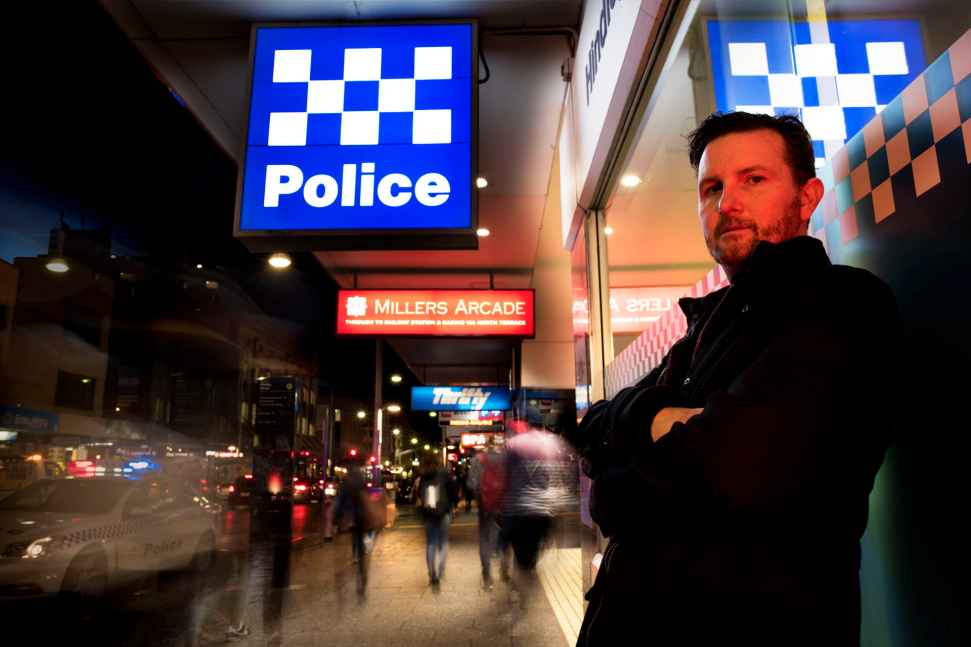
Dr Derek Dalton is Associate Professor in Criminology at Flinders University. He has a PhD from The University of Melbourne and comes from a background in High School teaching. His research interests include the historic regulation of homosexuality and, more recently, a burgeoning interest in ‘dark tourism’. This burgeoning new area of interest culminated in the publication of Dark Tourism in Crime in 2015 (Routledge). Derek is a triple award winning teacher, including the prestigious Commonwealth Government awarded “citation” for demonstrated excellence in teaching (for his Bachelor of Criminology topic Crime Law and Trauma). Derek has done consultancy work for Australian law enforcement around such topics as Hate-crime prevalence in homicide cases in New South Wales.
Willem de Lint is Professor in Criminal Justice at Flinders University. He is researching and publishing in policing, victimology and critical criminology. His latest publications are on counter-terrorism prosecutions, victim self-medication and public order policing. His current projects include work on criminologies of the military and inter-agency policing.
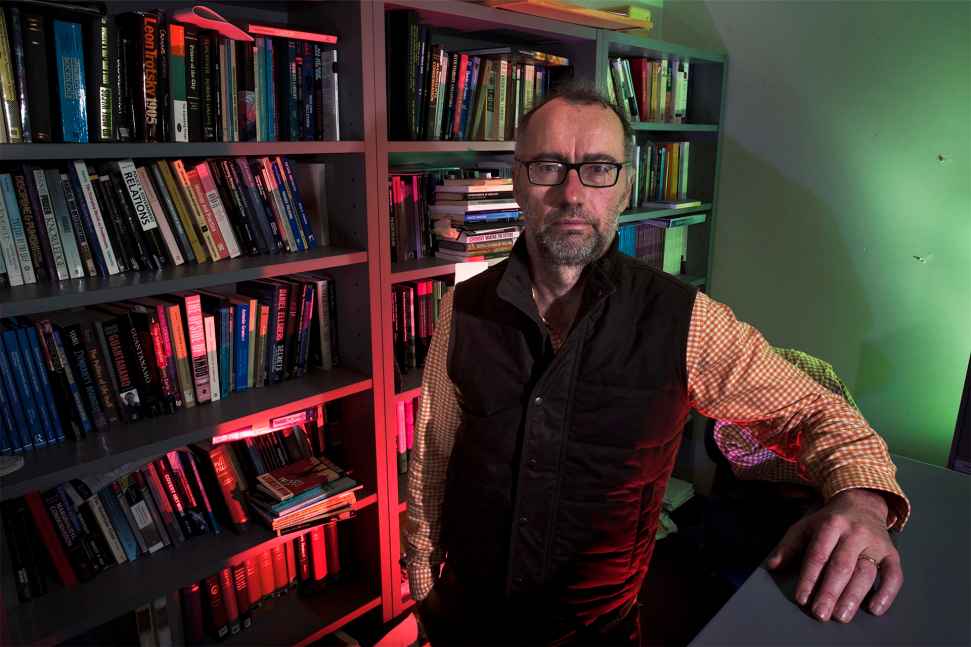
Dr Maria Giannacopoulos is Senior Lecturer in Socio-Legal Studies at Flinders University. She holds a BA (Hons) LLB (Hons) and a PhD in Critical and Cultural Studies. The entirety of Dr Giannacopoulos' research is oriented by the impetus to expose the complex ways in which the institution of law is not a neutral apparatus that is inherently just. She grounds her rigorous and original analyses of law in two overlapping fields: Aboriginal sovereignty and refugee and asylum seeker studies. As a recent recipient of a Flinders University Faculty award for teaching excellence, Dr Giannacopoulos’ teaching was recognised as being distinguished by the manner in which it is critically underpinned and driven by innovative research aimed at exposing students to new ways of understanding law, processes of criminalisation, injustice and justice and a host of other emerging urgent issues.
Professor Andrew Goldsmith is Matthew Flinders Distinguished Professor of Criminology and Director of the Flinders Centre for Crime Policy and Research. He is also a Fellow of the Academy of Social Sciences in Australia. He has degrees in law, criminology and sociology, including a Doctorate of Juridical Science from the University of Toronto and a Doctorate of Laws from the London School of Economics, University of London. He has previously held academic positions in the United Kingdom and at Monash University, the University of Wollongong, and the Australian National University. Prior to becoming an academic, he worked in legal practice in Adelaide and country SA for three years. He is an active researcher in the areas of transnational policing, organised crime and cyber-crime. He teaches Criminal Law in Context in the Bachelor of Criminology.
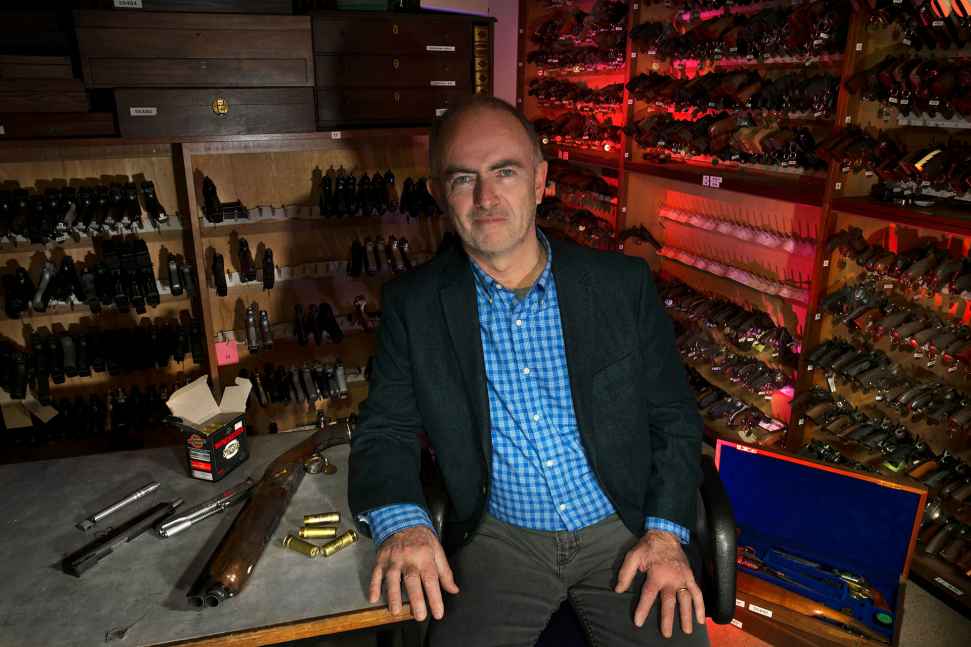
Professor Mark Halsey has an international reputation in the areas of prisons, rehabilitation and desistance from crime. Since 2003, he has conducted in-depth interviews with people convicted of such crimes as motor vehicle theft, armed robbery, rape and murder. Professor Halsey is the recipient of four Australian Research Council grants including a Future Fellowship which explored the causes and consequences of intergenerational imprisonment. Data from Professor Halsey's research is used extensively in the second year Bachelor of Criminology topic Punishment and Society.
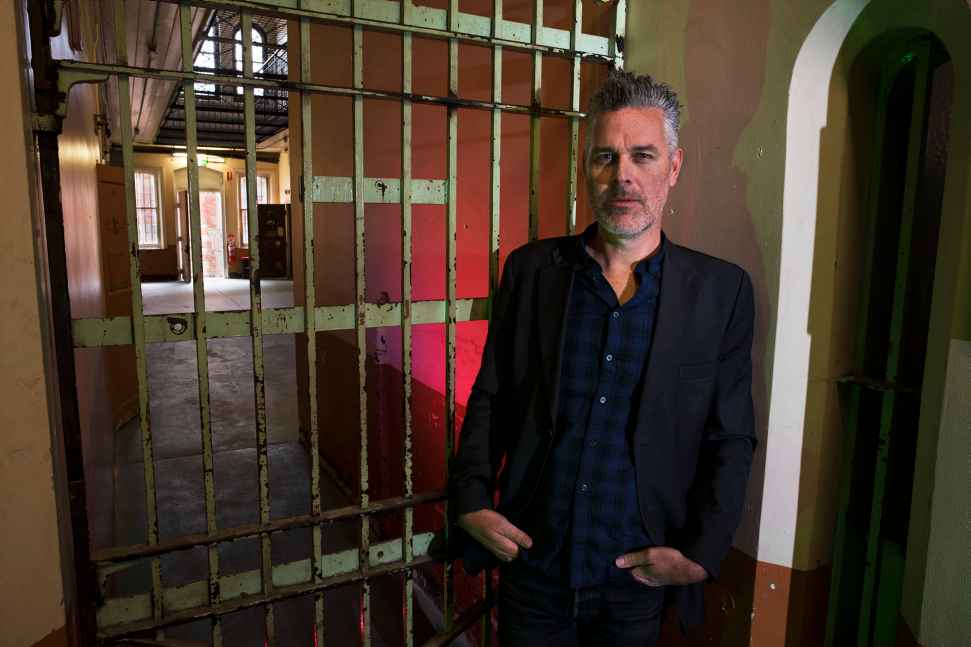
Dr Marinella Marmo is an Associate Professor in criminology and investigates victimhood across borders, with emphasis on transnational migration and human rights. Her work has been published by leading journals, and appears in a number of books and edited collections. Her research has attracted significant international attention as evidenced by a substantial number of news print articles, including The Guardian, The New York Times and many others, and has been cited by leading practitioners, political figures and judges across Europe. Her contribution to excellence in teaching has been recognised by an Australian Government’s Citation for Excellence in Teaching in 2012. A/Prof Marmo is an assessor for the Australian Awards for University Teaching and belongs to the expert pool for Horizon 2020 grants (European Union).
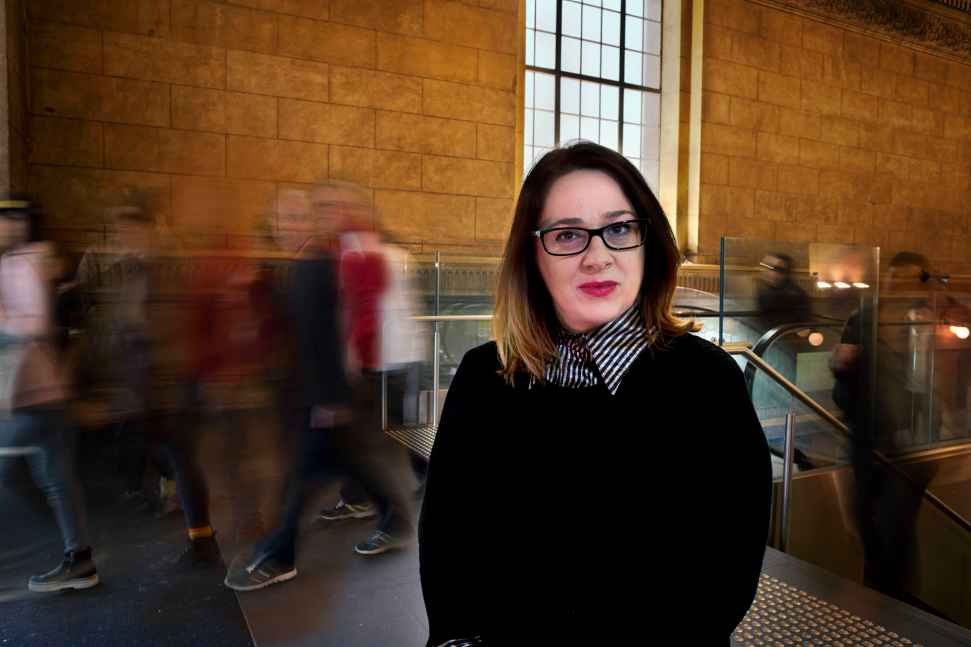
Dr Angela Melville is a Senior Lecturer in the College of Business, Governance and Law. She has a PhD in sociology and anthropology from the University of Newcastle, Australia. She is the former Scientific Director at the Oñati International Institute in Sociology of Law, in Spain, and has had previous posts at the University of Manchester and the University of Newcastle upon Tyne, UK. Her research focuses on the sociology of the legal profession, including stratification within the profession, delivery of legal services, family and child law, civil litigation and legal education. She teaches adavanced topics on research methods.
Centre for Crime Policy and Research
You'll be equipped with applied, relevant teaching practice informed by strong connections to government and industry through our internationally recognised research profile and Centre for Crime Policy and Research.
The Centre for Crime Policy and Research is a dedicated multidisciplinary team of researchers at the forefront of investigating many different areas of crime activity.
Their work at Flinders University extends around the world with ground breaking research for local and international communities, including government, non-government, private sector organisations and the media.
Strategic research areas include organised crime and corruption; transnational security; corrections and public protection; and cybercrime.
Pursue multiple passions
Pursue multiple passions with flexible combined degree options with psychology, law, forensics, cybersecurity and others.
| SATAC code: | 214442 |
| Course length: | 5 - 6 years full-time (or equivalent part-time) |
| Prerequisites: |
None |
| Location: | On campus, Bedford Park |
By combining studies in laws and legal practice with criminology, you will develop the professional legal skills to prepare you for a job in the legal profession and gain an understanding of how justice and society influence each other.
The combination prepares you for a broad range of careers in law but also government, leadership and educational settings.
| SATAC code: | 224941 |
| Course length: | 4 years full-time (or equivalent part-time) |
| Prerequisites: |
None |
| Location: | On campus, Bedford Park |
Explore the intersection between psychology and the criminal justice system and the psychological factors underlying criminal behaviour by studying the Bachelor of Criminology combined with the Bachelor of Psychological Science.
With further study, you will be able to apply for registration as a psychologist, and will be well placed for a future career in forensic psychology.
| SATAC code: | 234662 |
| Course length: | 3 years full-time (or equivalent part-time) |
| Prerequisites: |
None |
| Location: | On campus, Bedford Park |
The Bachelor of Criminology gives you a broad understanding of criminological theory and its applications in criminal justice contexts. You’ll work independently and collaboratively in projects of significance and improve your ability to reason and argue clearly.
Combining these studies with a Bachelor of International Relations opens the door to a multitude of careers in international organisations, aid and human rights, government, transnational crime, terrorism, and non-government organisations.
Gain a leading edge in the growing market for cybercrime professionals
Cybercrime is the fastest growing component of crime today and impacts on our world both financially and socially.
Cybersecurity Ventures predicts there will be 3.5 million unfilled cybersecurity positions globally by 2021, with the Palo Alto Research Center and Symantec both projecting the demand for cybersecurity talent rising to 6 million jobs (total jobs, filled and unfilled) globally by 2019*.
As part of addressing this growing demand, we are bringing together our teaching and research strengths in criminology with those in network and cybersecurity networks, to introduce a new combined degree, the Bachelor of Information Technology (Network and Cybersecurity Systems)/Bachelor of Criminology.
By combining your studies in network and cybersecurity systems with criminology, you will not only learn about the technical aspects but also the cultural and behavioural aspects of cybercrime, placing you in a leading position in this high demand career.
* Source: Forbes.com, The Fast-Growing Job With A Huge Skills Gap: Cyber Security

Pathways to University
Whether you are looking for alternative pathways to the course of your choice or you’re wanting to start your University studies, we offer a range of pathways to study at Flinders.
How to apply
All undergraduate and most postgraduate applications are made through the South Australian Tertiary Admissions Centre (SATAC).
Criminology courses
- Bachelor of Criminology
- Bachelor of Criminology
- Bachelor of Criminology
- Bachelor of Criminology
- Bachelor of Criminology
- Bachelor of Criminology
- Bachelor of Criminology
- Bachelor of Criminology
- Bachelor of Criminology
- Bachelor of Criminology
- Bachelor of Criminology
- Bachelor of Criminology
- Bachelor of Criminology
- Bachelor of Criminology
- Bachelor of Criminology
- Bachelor of Criminology (Cybersecurity)
- Bachelor of Criminology (Cybersecurity)
- Bachelor of Criminology (Cybersecurity)
- Bachelor of Criminology (Cybersecurity)
- Bachelor of Criminology (Cybersecurity)
- Bachelor of Criminology (Cybersecurity)
- Bachelor of Criminology (Cybersecurity)
- Bachelor of Criminology (Cybersecurity)
- Bachelor of Criminology (Cybersecurity)
- Bachelor of Criminology (Cybersecurity)
- Bachelor of Criminology (Cybersecurity)
- Bachelor of Criminology (Cybersecurity)
- Bachelor of Criminology (Cybersecurity)
- Bachelor of Criminology (Cybersecurity)
- Bachelor of Criminology (Honours)
- Bachelor of Criminology (Honours)
- Bachelor of Criminology (Honours)
- Bachelor of Criminology (Honours)
- Bachelor of Criminology (Honours)
- Bachelor of Criminology (Honours)
- Bachelor of Criminology (Honours)
- Bachelor of Criminology (Honours)
- Bachelor of Criminology (Honours)
- Bachelor of Criminology (Honours)
- Bachelor of Criminology (Honours)
- Bachelor of Criminology (Honours)
- Bachelor of Criminology (Honours)
- Bachelor of Criminology (Honours)
- Bachelor of Criminology (Honours)
- Bachelor of Criminology (Innovation)
- Bachelor of Criminology (Innovation)
- Bachelor of Criminology (Innovation)
- Bachelor of Criminology (Innovation)
- Bachelor of Criminology (Innovation)
- Bachelor of Criminology (Innovation)
- Bachelor of Criminology (Innovation)
- Bachelor of Science (Forensic and Analytical Science)
- Bachelor of Science (Forensic and Analytical Science)
- Bachelor of Science (Forensic and Analytical Science)
- Bachelor of Science (Forensic and Analytical Science)
- Bachelor of Science (Forensic and Analytical Science)
- Bachelor of Science (Forensic and Analytical Science)
- Bachelor of Science (Forensic and Analytical Science)
- Bachelor of Science (Forensic and Analytical Science)
- Bachelor of Science (Forensic and Analytical Science)
- Bachelor of Science (Forensic and Analytical Science)
- Bachelor of Science (Forensic and Analytical Science)
- Bachelor of Science (Forensic and Analytical Science)
- Bachelor of Science (Forensic and Analytical Science)
- Bachelor of Science (Forensic and Analytical Science)
- Diploma in Criminology
- Bachelor of Criminology (Honours)
- Bachelor of Criminology (Honours)
- Bachelor of Criminology (Honours)
- Bachelor of Criminology (Honours)
- Bachelor of Criminology (Honours)
- Bachelor of Criminology (Honours)
- Bachelor of Criminology (Honours)
- Bachelor of Criminology (Honours)
- Bachelor of Criminology (Honours)
- Bachelor of Criminology (Honours)
- Bachelor of Criminology (Honours)
- Bachelor of Criminology (Honours)
- Bachelor of Criminology (Honours)
- Bachelor of Criminology (Honours)
- Bachelor of Criminology (Honours)
- Bachelor of Criminology (Honours) 1 year


